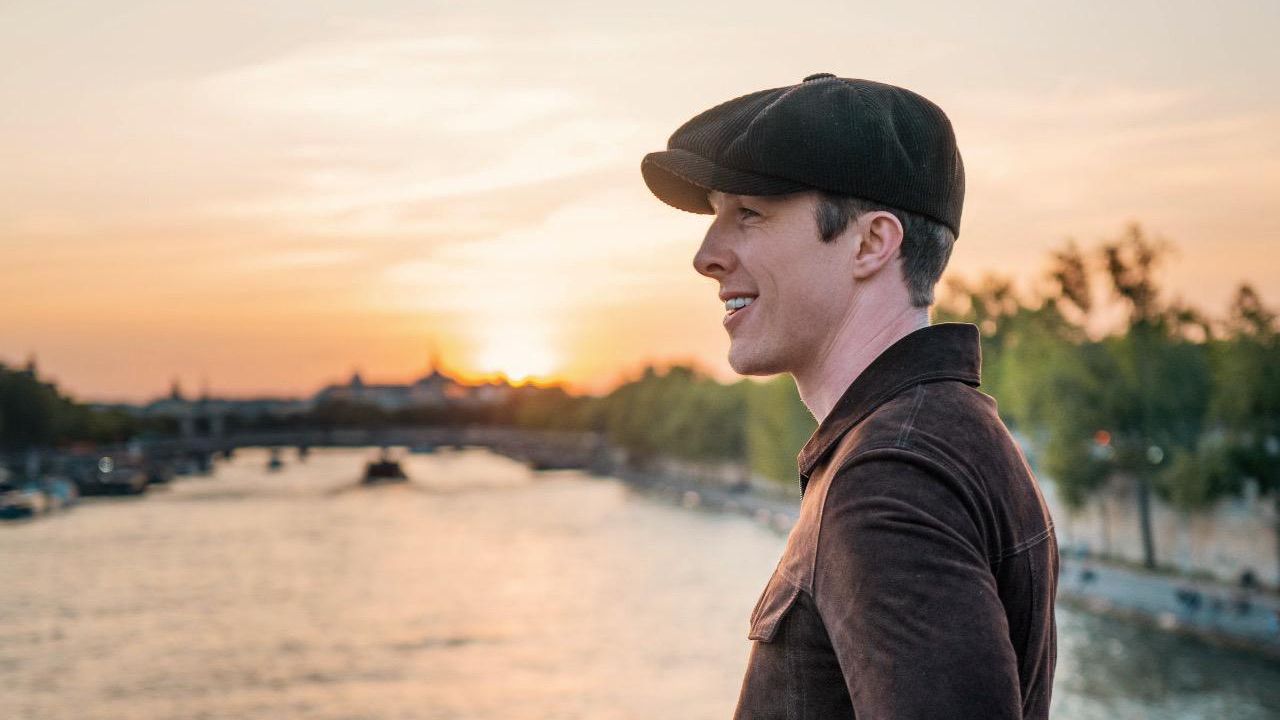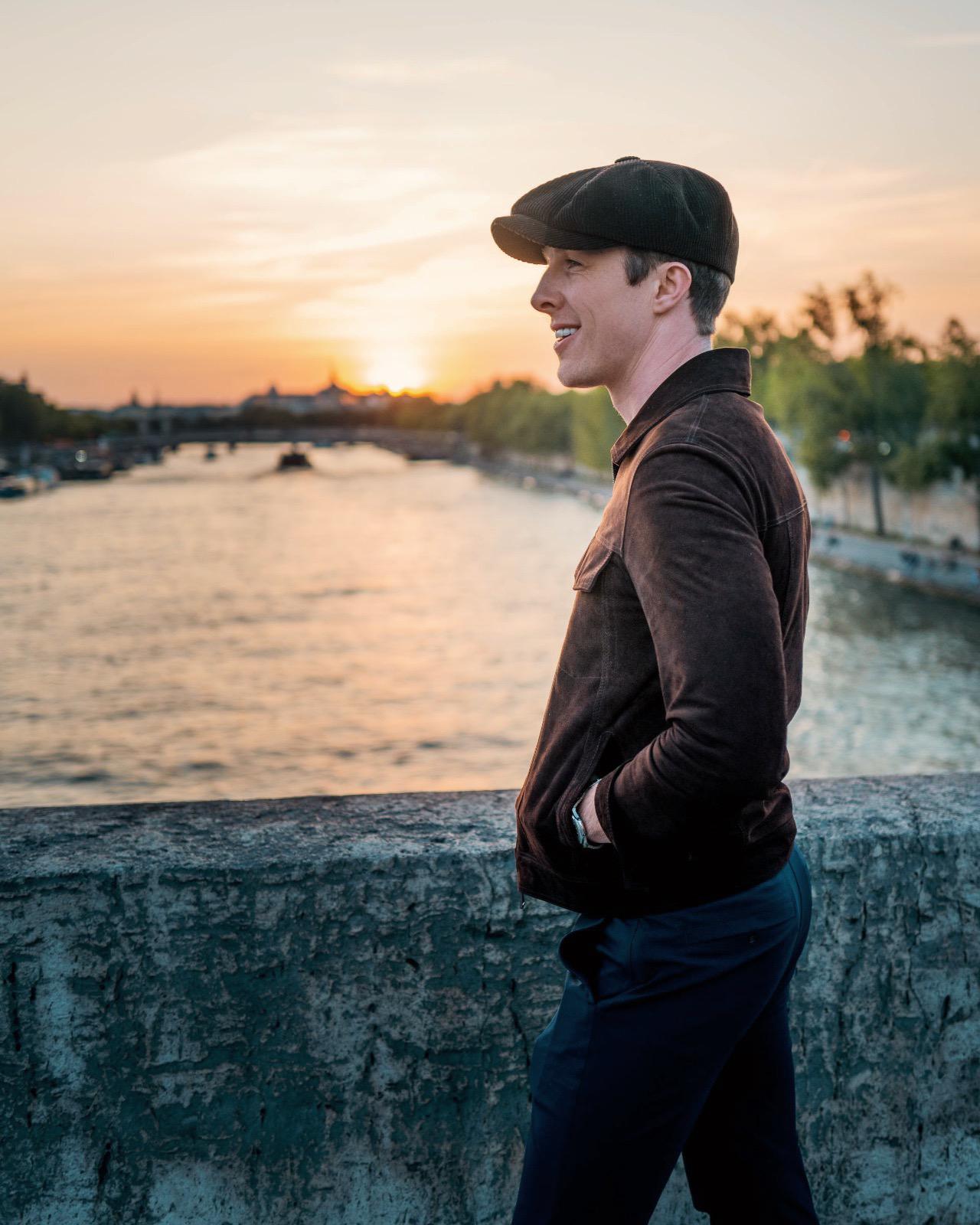My story with music, Stephen Ridley and the Ridley Academy

I wanted to talk some about the Ridley Academy, and Stephen Ridley in particular, from my first hand experience. I was there wondering if the Ridley Academy was legit myself.
As far as I can remember, I've always had a strong desire to play the piano. When I was six years old, I took some piano lessons but ended up giving up after a few sessions. The subject seemed incredibly challenging to learn.
I completely stopped pursuing it until I turned 26 years old. At that point, I bought a piano as I was searching for a hobby and also purchased two or three books on music theory, which I thoroughly studied. However, I was still confused about the relationship between chords and scales.
I spent a lot of time learning different songs, especially rock 'n' roll. I distinctly remember practicing for about six months to master "Jailhouse Rock" by Elvis Presley. I would dedicate approximately 30 minutes per day to practice, and I continued this routine for about two years. Unfortunately, my progress was very slow, and I struggled to read simple music sheets, often relying solely on memorization.
After two years, I gave up on my efforts. About eight years later, I stumbled upon a YouTube channel called HD Piano while in Los Angeles. Intrigued, I purchased many of their courses to revisit music theory. The channel also had numerous videos with falling notes that helped me learn songs. I spent months trying to learn "Let It Be" and "Imagine," which are two of my all-time favorite songs. Initially, I played them quite well, but after two months of not practicing, I had completely forgotten how to play them.
I came to the conclusion that the only way to learn music was to practice every day. However, I started to believe that maybe I wasn't cut out for it since I consistently forgot the songs if I didn't play them daily.
I also had many questions about scales. One of my biggest confusions was that after spending months learning a song and knowing which specific notes to play, when I played with a band, I would have to transpose the song higher or lower. This meant learning everything all over again. I was baffled by professional piano players who could effortlessly change the key of a song and remember the notes.
My frustration grew, but the goal of learning the piano still burned within me. To complicate matters, one morning I had lunch with a professional piano player who could perform in front of thousands, and he confessed that he couldn't write songs at all. He could only execute other people's music. This left me even more perplexed. How could such a professional be unable to write a song when it was my ultimate goal?
To add to the confusion, I had another friend who wasn't a skilled performer but managed to write a new song or melody every week.
I also heard about people who could learn songs by ear. The entire subject was utterly baffling to me.
But I was determined to persist. Around six years ago, I discovered an app called Simply Piano. It allowed users to learn songs gradually and play them on their piano. By connecting the app to the piano using a MIDI cable, the app could detect mistakes, prompting users to play the song again until they hit the notes correctly.
I spent two years on that app, progressing through at least 20 levels. However, I felt even more frustrated because I lacked a true understanding of what I was doing. Everything was purely based on muscle memory and memorization. I despised this approach and eventually quit, convinced that I would never learn the piano because I was too unintelligent for it.
Two years ago, while still in Los Angeles, I heard about a public concert featuring an artist named Stephen Ridley. My daughter had raved about him, claiming he was incredible.
When the concert began, Stephen stood on his chair in front of the piano, leaned down, and pressed a note. He repeated this motion, pressing another note. And then, like a zorro, he jumped onto the piano and started playing with an incredible amount of emotion. I had never witnessed anything like it before. Most piano players I had seen were great, but I often became numb to the music, perceiving it as mere background noise. However, Stephen was doing something entirely different. He played with varying dynamics, going from loud to soft, utilizing volumes and rhythms like I had never seen.
In fact, I had only experienced a similar level of performance twice before. The first time was when I was in my twenties and watched the movie "Great Balls of Fire," with Dennis Quaid portraying Jerry Lee Lewis. The other instance was when I saw Elton John play.
This concert was a mesmerizing experience. Despite attending several concerts, such as Paul McCartney playing with the Beatles at Stade de France and Robbie Williams at Parc des Princes, I must admit that I felt as much, if not more, emotion from watching just one man play the piano. It was an intimate and incredibly powerful experience that made me feel like I was having an out-of-body sensation.
After the concert, I stayed to speak with Stephen, and we had a chat. I expressed to him that my dream was to play at least 1% as well as he did. His response was, "I get that all the time." He had recently spent months recording a full class with a new piano teaching method that allowed people to play much more than just 1%.

He said something that struck me profoundly and became a significant epiphany. He said, "95% of music theory is useless. If you have a core understanding of music, you don't need all these complex Italian and Latin words." I had spent so many years trying to learn those terms, only to realize that they weren't necessary.
I was thrilled to hear this revelation. I got hold of the class he mentioned and started watching. Each lesson was simple yet eye-opening, removing years of confusion. I realized that I had been overcomplicating the subject.
Immediately, I started playing and composing music. It was a major breakthrough for me. Composing turned out to be surprisingly easy. Scales became super easy once I truly understood music.
As I write this article, I'm about halfway through the Ridley Academy, which Stephen likes to call "level 3." It's been incredibly enjoyable. I have complete confidence that I will never need another app or piano lesson because now I possess the tools to create and play the piano just as I always wanted.
To conclude this article, I want to share one more story. A friend of mine introduced me to a show called "The Chef and the Food Truck." I can't recall the exact name, but it tells the story of a Ritz pastry chef who goes to Los Angeles and cooks in various food trucks around the city.
It's a very entertaining show. The friend who recommended it invited me and Stephen, who happened to be in Paris at the time. He hired me to take photos of him around the city. We went to the Ritz and enjoyed some incredible pastries. As we were there, the chef from the TV show walked into the room, exclaiming to everyone.
In the background, there was a piano player performing very softly, and to be honest, it was challenging to hear him. When the chef approached our table, I introduced him to Stephen Ridley and mentioned that he was an incredible piano player.
The chef became intrigued and asked Stephen if he would perform at the Ritz. Stephen accepted the offer. He started playing "Inception," specifically "Time" by Hans Zimmer, one of his favorites. He began slowly and quietly, his eyes closed, seemingly in a trance. Suddenly, he transitioned
Suddenly, he started playing incredibly loud. At first, I felt a wave of embarrassment and wished I could hide somewhere. His playing was ten times louder than the original piano player.
Everyone in the room stopped eating and turned their attention to him. They couldn't help but watch and listen. After just two minutes, he received a standing ovation!
A music manager happened to be present, preparing a concert at the Olympia, one of the most prestigious concert halls in Paris. He was immediately captivated and wanted to see more of Stephen's talent. He was willing to pay nearly $50,000 for him to perform a few songs at the concert hall.
Another chef who was there invited Stephen to visit one of his restaurants. Additionally, a wealthy individual expressed interest in booking him for a private show. All of this happened within a mere three minutes.
This showcases the immense power of music. Currently, I work with Stephen and assist in the marketing of his school, the Ridley Academy. I witness people from all skill levels, including Emmy award-winning musicians and complete beginners, having an incredible amount of fun at the Ridley Academy.
Stephen is truly a unique artist, and his teaching method is revolutionary. It represents how music should have been taught for centuries but never was.
After a lifetime of searching for a method that resonated with me, I finally found the Ridley Academy!
Find out more about the Ridley Academy
Check out these reviews from his students!
